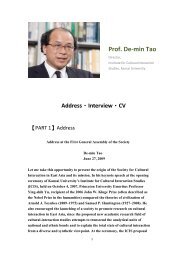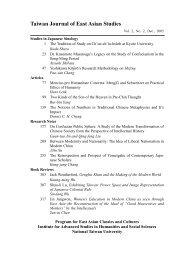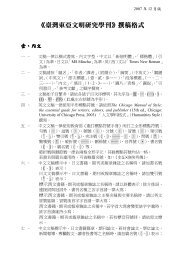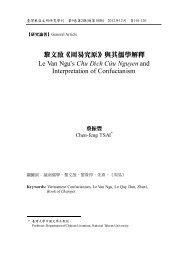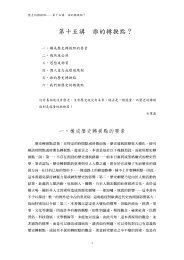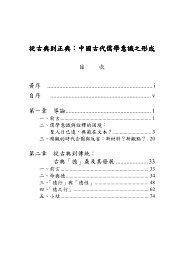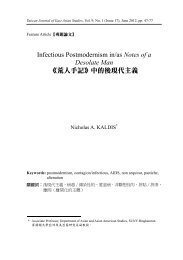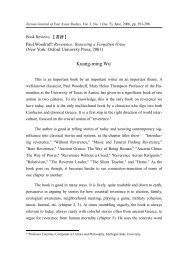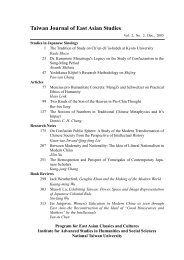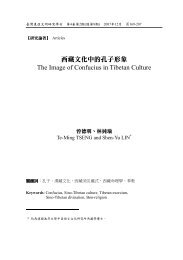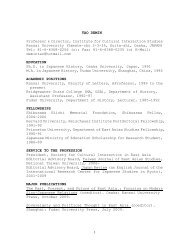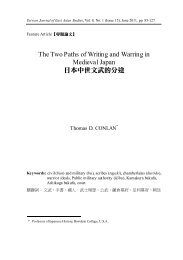臺灣東亞文明研究學刊 - 東亞經典與文化研究計畫 - 國立臺灣大學
臺灣東亞文明研究學刊 - 東亞經典與文化研究計畫 - 國立臺灣大學
臺灣東亞文明研究學刊 - 東亞經典與文化研究計畫 - 國立臺灣大學
Create successful ePaper yourself
Turn your PDF publications into a flip-book with our unique Google optimized e-Paper software.
Jörn RÜSEN Future-directed Elements of an European Historical Culture 219<br />
The author Adolf Muschg has called this integration of negative elements into<br />
a European historical identity "a specific achievement of memory". 8 It is an open<br />
question what consequences this paradigmatic change in the cultural procedures of<br />
identity formation will bring about. This process is going on. It has not yet<br />
sufficiently infiltrated the still powerful nationalistic elements in the historical<br />
identity of European countries, mainly in Eastern Europe. On the other side there is<br />
a danger to become proud of this ambivalence and to ground the European selfesteem<br />
on this pride. But my general impression is different: we can observe strong<br />
doubts of the European intelligenzia about themselves. To quote Adolf Muschg<br />
again: "The golden standard for the credibility of the European construction is<br />
hidden in the depths of doubts about its load-bearing capacity." 9<br />
It is this doubt and its expression in debates and discussions and a general antitriumphant<br />
relationship to the past which characterizes European historical culture<br />
at least in the very perspective within which it appears as future-directed. Elements<br />
of mourning indicate new components of sense generation in historical culture as<br />
well. The clear moralistic distinction between perpetrators and victims is replaced<br />
by a much more complex interrelationship, within which the perpetrators even can<br />
become victims and the other way around.<br />
As to the second attribute of ethnocentrism—an origin-oriented teleology—the<br />
Europeans at least on the level of academic and public discourse—have given up<br />
the idea of an uninterrupted development of Europe from its very beginning in<br />
Greek antiquity. 10 . There is a structural change in the logic of historical thinking<br />
under way: Instead of an origin-oriented teleology history is becoming a futureoriented<br />
reconstruction of the past. In this kind of historical perspectivation the<br />
8 Ibid., p. 40.<br />
9 Ibid., p. 65.<br />
10 According to one of our leading humanists Jan Assmann even this origin lies in old Egypt's<br />
achievements of a civilized human life Assmann, Ma'at. Gerechtigkeit und Unsterblichkeit im<br />
Alten Ägypten (München: C. H. Beck, 1990).<br />
xi



